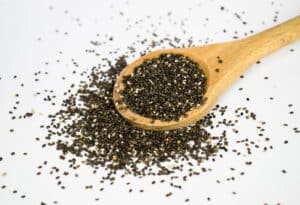
Chia seeds (Salvia Hispanic), often known as Salba chia or Mexican chia, are edible seeds from a mint family flowering plant. Many countries, including Mexico, Guatemala, Peru, Argentina, Australia, and the United States, now grow chia commercially. The seeds are well-known for being nutrient-dense supplements to a balanced diet.
Benefits of chia seeds
Helps with Constipation

Chia seeds include insoluble fiber of about 10 grams per ounce, which keeps you fuller for longer and bulks up a stool to prevent constipation, according to the American Society for Nutrition.
Can help with weight loss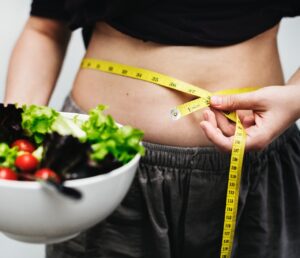
When you eat the seeds, the soluble fiber absorbs water, causing them to expand in your stomach and increase your feeling of fullness. Also, chia seeds aid weight loss due to their high protein and fiber content. Protein suppresses the appetite and keeps you feeling full, which means you will eat fewer potentially unhealthy snacks.
One study in 24 participants found that eating 0.33 ounces (7 grams) or 0.5 ounces (14 grams) of chia seeds mixed with their food for breakfast increased feelings of fullness and reduced food intake in the short term compared to eating breakfast without it.
Full of antioxidants and minerals
They also provide healthful fats, protein, and antioxidants that protect cells. Antioxidants are important cancer-fighting nutrients found in food. They combat free radicals, which cause cell, protein, and DNA damage. Because chia seeds are abundant in antioxidants, it is only natural to incorporate them into as many foods as possible. Processed meats and foods that contain high amounts of sugar are examples of foods that are high in free radicals yet low in antioxidants.
Some of these antioxidants include:
- Caffeic acid
- Chlorogenic acid
- Kaempferol
- Quercetin
Chia seeds are high in minerals, including:
- calcium
- iron
- zinc
- copper
- manganese
- niacin
- Magnesium
In fact, just one ounce (28 grams or 2 tablespoons) of chia seeds contains:
- calories: 138
- protein: 4.7 grams
- fat: 8.7 grams
- alpha-linolenic acid (ALA): 5 grams
- carbs: 11.9 grams
- fiber: 9.8 grams
- calcium: 14% of the Daily Value (DV)
- iron: 12% of the DV
- magnesium: 23% of the DV
- phosphorus: 20% of the DV
- zinc: 12% of the DV
- vitamin B1 (thiamine): 15% of the DV
- vitamin B3 (niacin): 16% of the DV
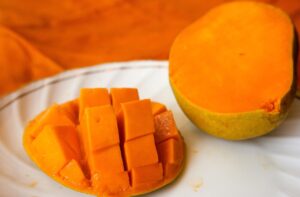
3 Ingredient Mango Chia Pudding
Ingredients
- 2 T Chia Seeds
- 1 cup mango, chopped
- 2 cups Plant Based Milk. your choice
Instructions
- Blend chia seeds and mango into the milk, until it is smooth. Refrigerate for 2 hours or up to 7 days. This will allow the seeds to absorb the milk. Enjoy as breakfast or dessert.
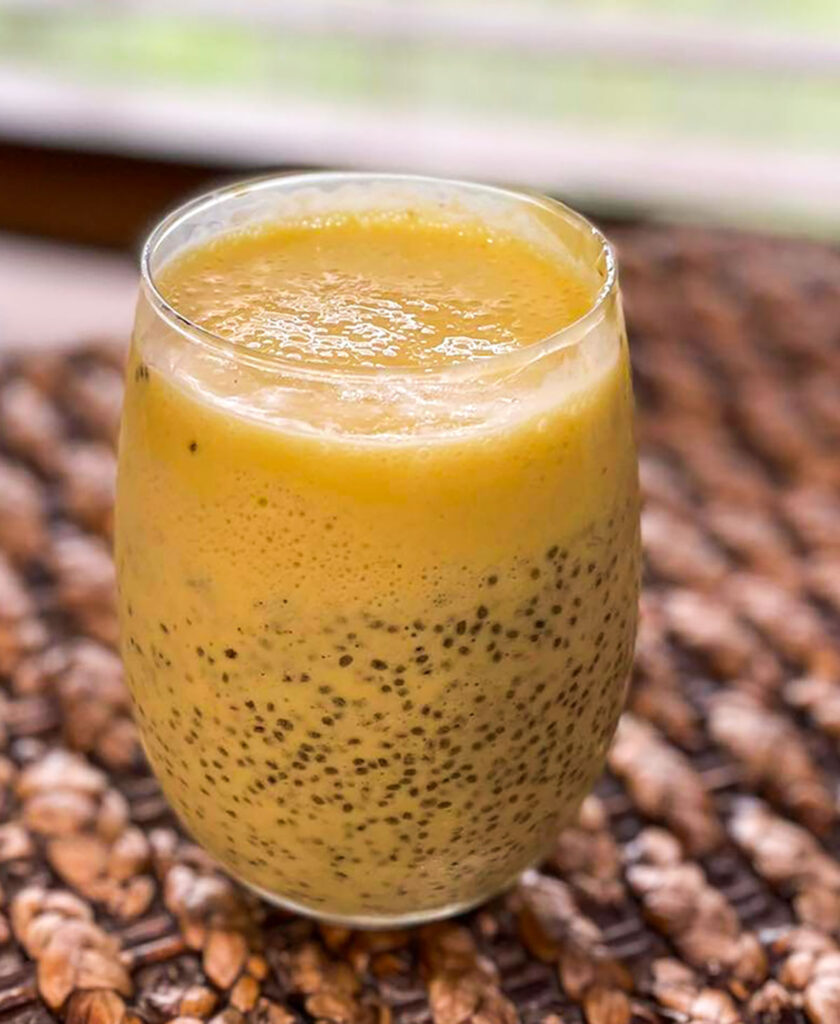
Notes
Helps with cholesterol
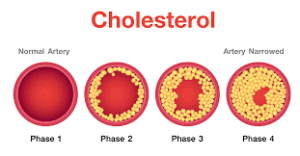
Chia seeds offer more omega-3 fatty acids than flaxseeds, according to Dr. Andrew Weil’s website. Omega-3 fatty acids may help lower your cholesterol and lower your risk of coronary heart disease. Chia seeds, unlike flaxseeds, contain more antioxidants and have a longer shelf life.
Helps with Diabetes and heart health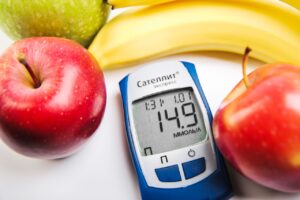
Chia seeds can also help to control blood sugar levels and enhance insulin sensitivity. This lessens the likelihood of spikes and crashes that might occur after meals. Diabetics, in particular, will benefit greatly from this.
A randomized controlled trial published in Diabetes Care determined that adding chia seeds to normal type 2 diabetes treatments improves cardiovascular disease risk and helps maintain good glucose and lipid control.
Easy to incorporate into your diet
Chia seeds are quite simple to include in your diet. Because they have a mild flavor, you can use them in almost any recipe. They do not require grinding, cooking, or any other preparation, making them a convenient addition to recipes.
They can be consumed raw, soaked in juice, or blended into porridge, pudding, smoothies, salad dressings, granola, and baked products. You can use them as a garnish on cereal, yogurt, veggies, and rice meals. They can also be used in jams, popsicles, and even used as bread crumbs. Chia seeds also perform well as a binding agent in handmade fritters.
You can use them to thicken sauces and as an egg substitute because of their capacity to absorb water and fat. They swell up several times their size when added to liquid and form a gelatinous covering that is easy to swallow and digest.
How much chia seeds should you eat in a day?
Depending on your gender and age, you should eat between 19 and 38 grams of fiber per day. Around 25 grams is ideal for women. Two tablespoons of chia seeds have 11 grams of fiber. Recommendations for consuming chia seeds runs about 1.5 teaspoons a day. Then, get the rest from other great sources of fiber, like beets, tomatoes, and broccoli.
@marlenemckinney077 #livelongerlivehealthy #fyp#fy#fypシ #livelong #workout #breakfastideas #🇧🇸🇧🇸🇧🇸 #🇧🇸🇧🇸🇧🇸 #rawfoods #walking
- Per serving
- Energy: 128 kcal / 535 kJ

Leave a Reply